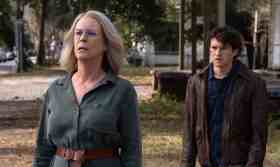Image via filmfestivalguide.com
It’s a dilemma cinephiles shouldn’t complain about: too many film festivals. In recent years, a thriving line-up of smaller events has emerged to fill in the gaps surrounding major city offerings. In year-round content, in championing features overlooked by larger programs, and in celebrating specific cultures, causes and rationales, each enhances Australia’s screen culture sector.
Such a packed roster of events competes for audience time and cash; however that’s just part of the problematic equation for smaller festivals. For enthusiastic organisers eager to turn their vision of an ideal screen celebration into a reality, sourcing the funds to stage and sustain niche and cultural film festivals can be a significant hurdle.
The fiscal side of film festivals is hard, regardless of the size and scope, but there’s no mistaking the increased difficulties at the smaller end of the scale. As Matt Ravier, director of Sydney-based non-profit outfit The Festivalists, puts it, ‘The economics of film festivals are lousy. Until or unless you reach a critical size, the business model is not one conducive to making money.’
The Festivalists boasts an impressive track record of events, organising the Possible Worlds Film Festival for nine years, including touring legs in Canberra, and – new this year – Perth. Also on their slate is ten years of the Young at Heart Seniors Film Festival, and running the thriving Sydney Film Festival Hub since 2012. In 2014, they managed the Windows on Europe and Access All Areas film festivals as well. The company has survived in a tough environment, but Ravier remains realistic about the challenges of the industry.
Balancing the demands of attracting and maintaining finance with the cost of running an event is perhaps the primary concern for festival staff. As Ravier explains, ‘Sandwiched between venues and rights holders who each demand a large financial contribution, with increasing marketing and publicity costs and competition from many more affordable forms of entertainment, festivals are not easy to sustain commercially’.





